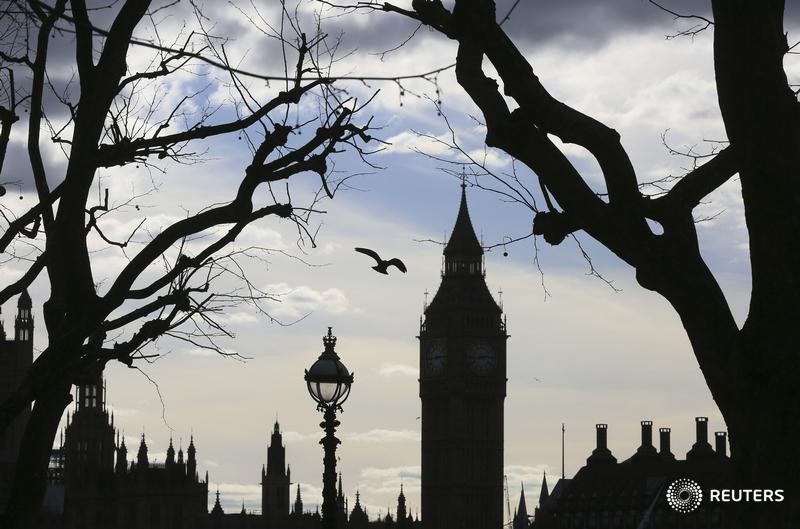(Bloomberg) -- Chancellor of the Exchequer Rishi Sunak faces the prospect of having to raise taxes to repair the public finances after his 30 billion-pound ($38 billion) stimulus package left the U.K. on course to borrow more this year than any time since World War II.
The extra spending will increase the cost of the government’s response to the crisis to almost 190 billion pounds, putting the budget deficit on course to hit 350 billion pounds in the current fiscal year, according to the Resolution Foundation think tank. That would be equivalent to about 17% of GDP.
For now, the pressure on the chancellor is political, rather than market driven. He needs to avoid a second wave of the virus and a wave of mass unemployment. With U.K. 10-year gilt yields close to zero, and hovering around record lows, he can afford to borrow, and postpone the question of how to pay for his largess during the crisis.
“The time to pay for this will come -- but not this year and not next,” said Paul Johnson, director of the Institute for Fiscal Studies. “Our capacity to do so will depend above all on how the economy recovers. A reckoning, in the form of higher taxes, will come eventually.”
That would be a problem for Sunak, given his party’s election promise not to raise income tax, national insurance or the U.K.’s sales tax. Any increases could also see some of the stardust fall from the chancellor, whose spending announcements during the crisis have boosted his popularity and left some considering him as a future prime minister.
“These interventions will cost an extraordinary amount of money,” Sunak told the BBC on Thursday. “We can’t sustainably live like this, and over the medium term we can and will return our public finances to a sustainable position.”
So far, Sunak has been helped by the Bank of England’s vast program of government bond purchases, which have kept borrowing costs near the lowest on record. The central banks has supported demand and left billions of pounds of bonds funded at the BOE’s 0.1% interest rate, rather than market rates, bringing down the cost of debt servicing even further.
Yields on 10-Year gilts barely budged after Sunak’s announcement on Wednesday, and are currently at about 0.18%.
But the scale of the budget deficit risks testing the equanimity of investors, with debt issuance in the first five months of the fiscal year already dwarfing the full-year record reached during the height of the financial crisis.
“We are borrowing at record-low rates that enable us to carry a higher degree of debt,” Sunak told the BBC. “But it would be important that we remain alert to changes in those interest rates.”
A sudden rise in interest rates isn’t the only risk he faces. This week, he also published a reminder of the threat the virus poses to his efforts to balance the books.
Buried in the Treasury document accompanying his statement was an announcement that he had allocated an additional 49 billion pounds to Britain’s public services since March, three times the latest estimate from the Office for Budget Responsibility.
Of that money, almost 32 billion pounds is going to health services, including 15 billion pounds for personal protective equipment and 10 billion pounds for the government’s track and trace program.
“No amount of fiscal support can mask the fact that the U.K. recovery hinges almost solely on avoiding a return to repeated, widespread lockdowns,” said James Smith, a developed markets economist at ING.
